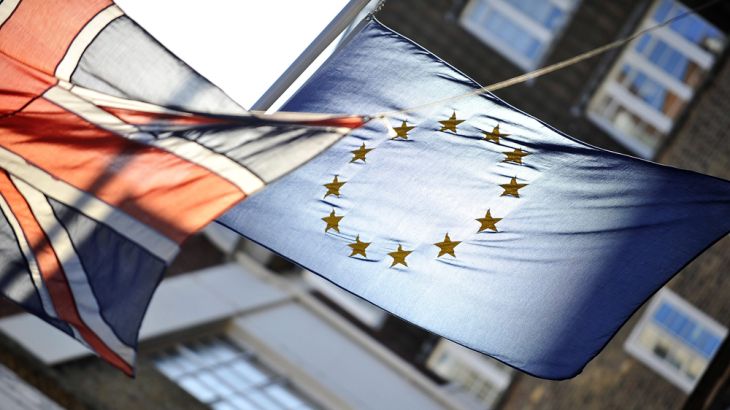
The Brexit scenario: Britain’s place in the EU
We look at the economic and geopolitical implications of a British exit from the European Union.
Following the Conservatives’ win in the UK elections, Britain is now preparing itself for a referendum on the UK’s European Union membership in 2017; a British exit from the EU is now a real possibility.
What would happen in a referendum is hard to predict, but the next two years spell uncertainty. Businesses will be operating and trading with Europe, without knowing whether they will still be part of that Union in the near future.
Keep reading
list of 4 itemsUS imposes new sanctions on Iran after attack on Israel
A flash flood and a quiet sale highlight India’s Sikkim’s hydro problems
Why is Germany maintaining economic ties with China?
Prime Minister Cameron wants to start renegotiating some of the terms of the UK’s membership on issues like migration within the EU, stopping the payment of benefits to new migrants, and the repatriation of some laws, from Brussels back to the UK parliament in Westminster.
The economic consequences could be significant. As many as four million jobs in the UK depend on EU trade, and eight million jobs in the EU could be at risk from the reduced trade, which is troubling considering the unemployment rate in the block is at 12 percent.
For now Britain’s partners are willing to offer some concessions, and want the UK to remain part of the EU, but this relationship has always been a strained one.
We speak to Roger Bootle, economist, Daily Telegraph columnist and author of The Trouble with Europe about a Brexit and what this could mean for the UK and the EU.
The return to a fight for the open skies
In the ongoing battle between American and Gulf airlines, Gulf carriers take their battle over accusations of unfair subsidies and competition to the US.
The American airlines say that Emirates, Qatar Airways and Etihad would be nowhere without the $42bn in subsidies they have allegedly received from their governments.
The Gulf carriers deny they have been subsidised, but US lawmakers are now pushing for the government to freeze agreements that allow Gulf air carriers access to US skies.
Research filed with the US Congress also shows that US airlines have received $155bn in subsidies dating back to 1918.
Counting the Cost talks to Qatar Airways CEO Akbar al-Baker, whose airline alone has been accused of receiving $16bn in state subsidies.
For more watch The fight for the open skies